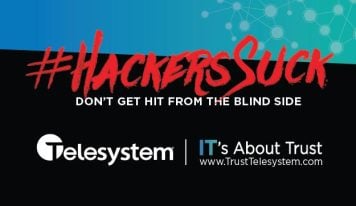Although there is no guarantee you can be 100% protected against hacking, there are some basics you can share with workers to reduce the chance you will be hit by a cyberbreach such as malware or cryptolocker ransomware. Without further ado – here are the 5 Habits That Could Cause a Data Breach at Your Company.
1. Clicking on random advertisements: Cybercriminals have been using fake advertisements to disguise malicious software for decades. But now, infected advertisements are becoming much more prevalent, and harder to recognize. They’re also becoming more dangerous, too. Many, for instance, are now embedded with ransomware which is a type of malware that can encrypt a machine and holds its assets until a fee is paid. Such advertisements have been found on popular websites like the New York Times, AOL, the BBC and the NFL.
If you enjoy clicking on digital advertisements, and you don’t want to give up the practice, then you should at least be vigilant for fake links. Always hover your mouse over an advertisement before clicking on it, and check to see if you recognize the URL. If the URL looks suspicious, try searching for the promotion in Google instead of clicking on the link. It may take an extra second, but it sure beats accidentally clicking on an infected website.
2. Forgetting to lock your accounts: We’ve all done this at least once: You get up from your desk and walk away, leaving your computer and its files open for anyone to hijack.
What’s wrong with doing this? It only takes a minute for someone to insert a malware-laden USB stick into your computer, or to steal your machine altogether. But it takes no time at all to set up a strong physical lock for a laptop, or a digital lock like a password or biometric security technology such as a fingerprint or voice scanner.
By taking basic security precautions like these, you could wind up sparing yourself from a great deal of pain down the road.
3. Sharing information too freely: Oftentimes, data breaches will occur because random employees have unrestricted access to sensitive data on the network. So think about all of your shared accounts that you use to collaborate with other workers, and make sure that only trusted sources have access to them. Otherwise, you could be at risk for an insider data breach.
You should also consider setting up a Cloud Access Security Broker (CASB), which can send detailed reports when end users try to access shared information on your network. For example, a CASB can be configured to send a notification if someone tries to access shared information after work, or from another country. A business may instruct its CASB to deny access to certain geographical areas.
You can use a CASB to thwart an illegal data dump, or illegal spying. This is very important when working with third party vendors, where you typically have limited visibility into who is accessing your account on a regular basis.
Here is the full post which we suggest you forward to your team – in fact we’d suggest sending it out quarterly or more often. We obviously suggest you invest in cybersecurity training for your team but even if you do, these sorts of reminders can be very helpful.






